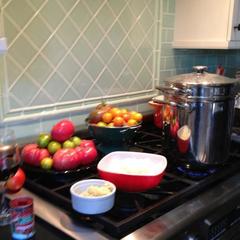-
Welcome to the eG Forums, a service of the eGullet Society for Culinary Arts & Letters. The Society is a 501(c)3 not-for-profit organization dedicated to the advancement of the culinary arts. These advertising-free forums are provided free of charge through donations from Society members. Anyone may read the forums, but to post you must create a free account.
How to Give a Dinner Party
-
Similar Content
-
- 7 replies
- 1,798 views
-
- 312 replies
- 23,320 views
-
- 312 replies
- 23,320 views
-
- 2,619 replies
- 434,503 views
-
- 19 replies
- 751 views
-
-
Recently Browsing 0 members
- No registered users viewing this page.






Recommended Posts